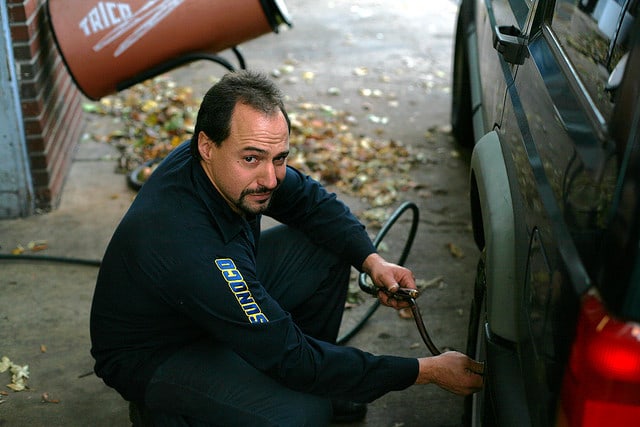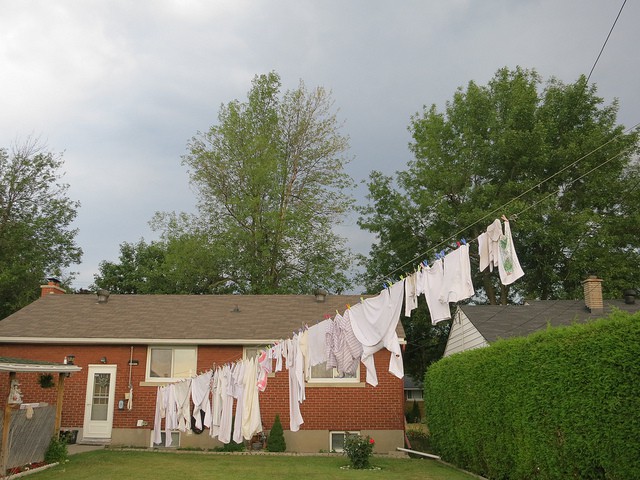If you want to help your planet, do not think that there is nothing that can be done. Everyone plays an important part in keeping the environment clean and safe. This means you can do so much and probably more than you think that you can. In fact, we are sharing with you 60 ways that you can go green. These tips are easy and things that anyone can use, so do not wait!
1. Change your light bulbs. Changing just one of the light bulbs in your home to a florescent light could make a serious impact on your energy consumption. Imagine what can happen if you change them all.
2. Turn your computers off at night. Even on energy-saving mode, you are using a lot of energy.
3. Turn off lights in the home when they are not being used. This alone can cut energy costs greatly.
4. Don’t turn on lights at all for as long as you can. Open your curtains and use natural light.
5. Stop rinsing dishes before you put them in the dishwasher. This is a great source of water and energy waste!
6. Stop using disposable bags. Get some reusable bags. Take your own bags with you to the grocery store. You reduce the use of plastic, and we all know how dangerous plastic is to the environment.
7. Reduce, Reuse and Recycle. Reduce the usage of packaged food items—reuse scrap paper. Recycle old jars.
8. Repurpose glass jars as leftover containers and bulk storage, especially in the kitchen.
9. Fix leaky faucets. This includes the toilet and the sinks in the home. Even a small leakage can cause a good amount of wastage of water.
10. Install sink water aerators. These are cheap and easy to install, and they greatly reduce the flow of water out of your sink, saving you money and water use.
11. Check if you can sign up for green power from your utility company. Also, conduct a quick energy audit of your home and replace electrical appliances with energy-efficient appliances.
12. Buy energy-efficient appliances in your home. There are many of them available, and they can greatly benefit you!
13. Unplug all of your electronics when they are not being used. Unplug unused chargers and appliances.
14. Use rechargeable batteries. Over time, invest in a full set of rechargeable batteries for all of your gadgets, remotes and smoke detectors in the house. Recharging batteries keeps dead ones out of the landfill and saves you money in the long run. Buy them on sale and stock up over time.
15. When washing clothing, make sure that you use cold water or warm water. Preferably wash laundry in cold water instead of hot. Using hot will take the machine longer to fill while consuming more water and using more energy.
16. When using the washing machine, wait till you have a full load of laundry to wash. This saves both water and energy on washing your clothes.
17. Hang dry your clothes rather than use the clothes dryer. Line or rack drying your clothes saves a ton of energy. Dryers are really bad in energy consumption, therefore, prevents air and water pollution from power plants.
18. Instead of drinking bottled water, install a water cleaning system on your sink. Plastic bottles are usually not recycled. Buy an inexpensive reusable water bottle, and stop buying disposable plastic bottles.
19. Cut the shower time in half and see your work into full swing!
20. Take a small shower instead of taking a bath.
21. Install low-flow showerheads. A low flow showerhead can significantly reduce the water coming out of your shower head without reducing water pressure.
22. Install a programmable thermostat. This handy little device allows you to program your heater or AC right before you get home, and turn down while you are out or asleep. This can save a ton of money on your utility bills, saving energy and reducing pollution—lower the temperature on your hot water heater.
23. Plant a tree. Even one tree can make a serious impact and do great things for the environment.
24. Recycling cell phones is another awesome way to go green. The average cell phone lasts about 18 months, but after this time, they can be recycled and given life again!
25. Use public transportation or carpooling to go to work. Better yet, walk when the weather is permitting.
26. Even better, walk or ride a bike for errands two miles or closer.
27. Pay all of your bills online. This will not only save you time but will also help to reduce paper wastage.
28. Shop eco-friendly. Tons of environmentally friendly products are sold. Choose these items for benefits.
29. Use recycled products whenever you can. This includes printer ink, paper, cardboard, etc. Even a reusable mug is good to have when you want to go green.
30. Reuse scrap paper. Print on two sides. Let your kids color on the backside of used paper.
31. Buying products in bulk reduces the amount of packaging needed, thus providing considerable benefits to the environment.
32. Do rainwater harvesting. Collect rainwater and use it to water your lawns and garden.
33. Start an organic garden. If you’re new to gardening, start with something easy like lettuce or tomatoes and work up to more.
34. Reduce the amount of junk mail that you receive.
35. Go paperless. All bills have the option of being paid online, so take advantage of this option.
36. Buy organic food, make organic meals and try out new green recipes every other day.
37. If possible, create a homemade compost bin and compost your food scraps. Composting can be done even if you live in an apartment and can save a ton of waste from going to the landfill. If you buy, the newer ones don’t even smell, and worm bins are even more efficient.
38. Buy vegetables that are grown locally. Not only will they taste better, they also help you go green and reduce the use of paper, plastics and shipping material.
39. Support local restaurants that use food derived less than 100 miles away.

40. Switch to cloth diapers instead of disposables. Even if you use one cloth diaper a day, that will result in 365 fewer disposables in the landfill each year.
41. Use cloth instead of paper to clean your kitchen. Repurpose old towels and t-shirts and cut them into small cleaning cloths.
42. Keep your fridge coils clean. If you do not clean the back/underside of your fridge, the dust might make it work harder than it needs to run efficiently.
43. Make your own cleaning solutions as store-bought cleaners are mostly full of chemicals that, in turn, pollute your home. There are tons of great cleaning formulas you can make at home that work just as well and cost few pennies to make. Just get some DIY cleaner recipes.
44. Take your vehicle in to the repair shop for regular maintenance. This will reduce emissions, and more.
45. If you have items around the home that you no longer need, do not throw them away. Instead, give them to someone who would use them, donate to a thrift store or have a garage sale and put some cash in your pocket.
46. Open windows in the home during daytime to let sunlight and fresh air come in.
47. Set the thermostats at the proper temperatures.
48. Pre-heating the oven is oftentimes not necessary and simply eats up energy costs.
49. Reuse scrap paper. Print on both sides of the paper to reduce paper wastage.
50. Keep your tires inflated. Tires that are low pressure are going to cause more wear on the car and more harm to the environment.
51. Reduce your dependence on fossil fuels to reduce greenhouse gas emissions. The less we depend on them, the better.
52. When in office, turn off all the peripherals such as printers, speakers and scanners when not in use.
53. Try to put a cover on your pool when you are not using it. This will not only make the water cleaner, but it will keep it from evaporating.
54. Get e-tickets for the movies instead of buying paper tickets. Even file your taxes electronically to cut back on paper usage.
55. Create your own wrapping paper or gift bags out of magazines, scrap cloth or newspaper. Make sure to recycle your old newspapers.
56. Read good natural living blogs on topics like sustainable living, zero waste home. See DIYs to reuse and reduce. Watch documentaries about the food industry and the environment.
57. Regularly learn about other countries or cultures, expanding your knowledge and worldview. Green living is emerging as a global movement to save Earth. Help your planet.
58. You can always donate what is not in use, such as school supplies of children, books, outgrown clothes and toys. Search for charitable organizations.
59. Involve yourself in making your city clean and green. Encourage everyone in your neighborhood to join or start a recycling program and buy eco-friendly office products.
As you can see, there is a ton of ways that you can go green. None of them are difficult, and anyone can use them to their advantage. If you care about the world and want to make a difference, know that you can, as proved with these 40 wonderful tips. You can make a difference in the world. Put these tips to good use, and the many benefits that come your way will not disappoint you. It is so easy and so simple, why not go green?






